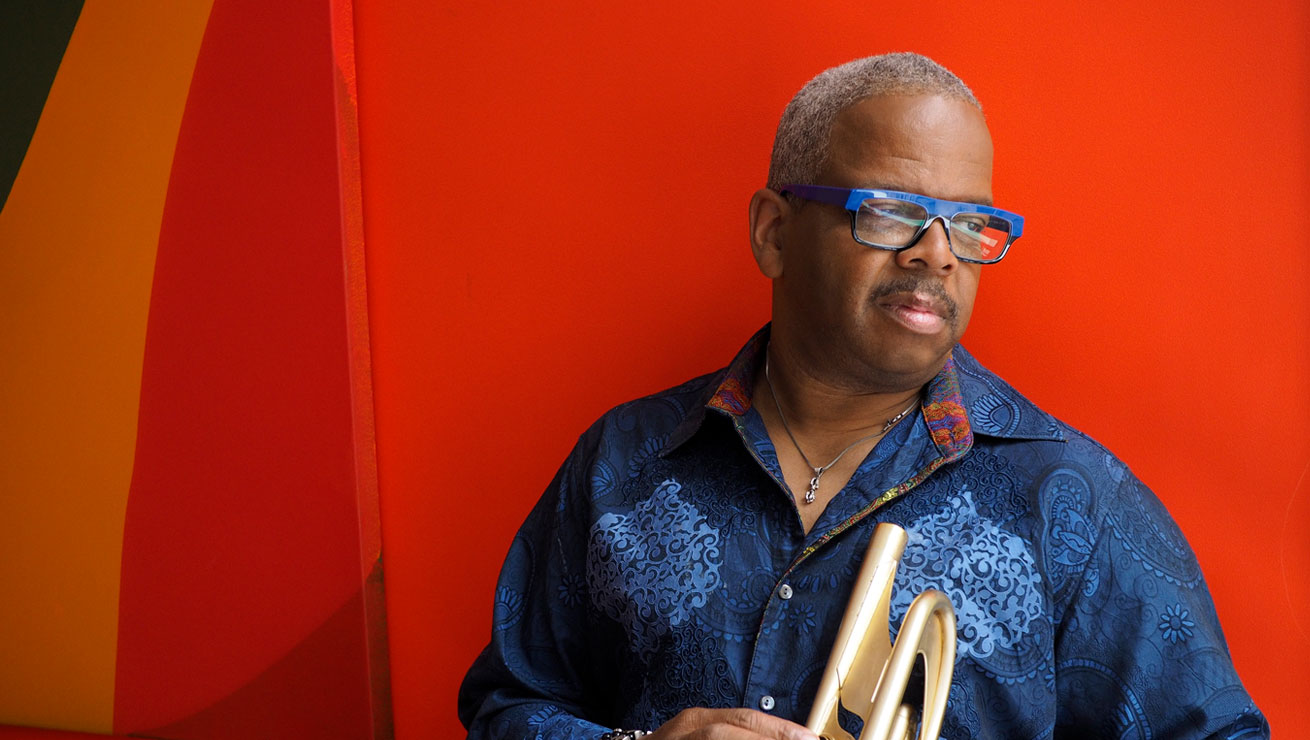
Since top-tier jazz and multiple Grammy-winning trumpeter and composer Terence Blanchard embarked on his solo recording career with his eponymous Columbia Records album in 1991, the New Orleans-born and based artist has traveled many paths musically, including delivering adventurous and provocative acoustic jazz outings of original material, composing over 50 soundtracks and even, in 2013, debuting Champion: An Opera in Jazz. He has also, in the spirit of his onetime membership in the jazz school of Art Blakey’s Jazz Messengers, mentored several musicians in his bands who have gone on to have significant recording careers of their own including Lionel Loueke, Aaron Parks, Kendrick Scott and one of his current band members Fabian Almazan).As a leader and co-leader (significantly four albums early in his career with fellow Crescent City artist, saxophonist Donald Harrison), Blanchard has recorded more than 30 albums that often defied genres, yet were still critically acclaimed. But for his latest Blue Note Records album, Breathless, Blanchard powerfully and playfully journeys into another jazz realm with his new quintet, The E-Collective—an exciting zone of grooved fusion teeming with funk, R&B and blues colors.
Produced by the trumpeter and his manager Robin Burgess and executive produced by Blue Note president Don Was, the adventurous 13-tune recording zeroes in on several Blanchard originals, an epic-length piece by Almazan and a scattering of covers, sung by soothing and soulful vocalist P.J. Morton (a member of the band Maroon 5), including an exhilarating take on the modern standard “Compared to What“ made famous by Les McCann and Eddie Harris, and the soul-vibed and lyrical take on “I Ain’t Got Nothin’ But Time” penned by Hank Williams. Plus, Morton sings the compelling pop-styled, song-of-strength tune, ”Shutting Down,” written by Blanchard’s talented son, T. Oliver Blanchard Jr., aka JRei Oliver, who also contributes spoken-word excerpts on others.
It’s a first foray into straight-up grooveland for Blanchard, and he’s thrilled with the dance-steeped party he and his quintet (and guests) have cooked up. “Breathless is the album I’ve been wanting to do for quite awhile,” he says. “Growing up I was listening to the Head Hunters and Weather Report, which had a strong effect on me. I always listened to groove-based music—Jimi Hendrix, Parliament Funkadelic and then later listening to Prince and D’Angelo and later what [jazz trumpeter] Russell Gunn was doing. But up to this point, I had never explored it.”
“Terence Blanchard has always been forward thinking, but with E-Collective he shoots straight into tomorrow adding all sorts of different types of electricity and attitude to a new set of tunes. The concept is still right now with a more modern edge and sound, vocals and all, but it’s still the tough but tender, timeless but vital unique tone that marks Terence’s horn as one of the truly great and classic jazzmen.” — David Kunian, Downbeat
Darrell Grant has risen from his introduction to audiences as the pianist in vocalist Betty Carter’s trio to an internationally-recognized performer, composer, and educator who channels the power of music to create community, sustainability, and social justice
Having performed with jazz luminaries including Frank Morgan, Tony Williams, Brian Blade, Esperanza Spalding, and Nicholas Payton, he followed his 1994 New York Times Top 10 Jazz Album Black Art with seven albums receiving critical acclaim from publications including the Village Voice, and DownBeat Magazine. He has toured as a bandleader and solo artist throughout the US, Canada, and Europe as well as in Turkey and Japan, in venues from Paris’s La Villa jazz club to the Havana Jazz Festival.
Dedicated to themes of hope, community, and place, Grant’s compositions include his 2012 piece, “Step by Step: The Ruby Bridges Suite” honoring civil rights icon Ruby Bridges who integrated New Orleans’s public schools. In 2012, he won a Chamber Music America grant for his composition “The Territory” which explores the connection to place through the geographic and cultural history of Oregon. Committed to practicing civic engagement through artistry, Grant has driven pianos deep into state forests to support the environment, arranged protest anthems, and shared the stage with Bishop Desmond Tutu.
Grant lives in Portland, Oregon where he was inducted into the Jazz Society of Oregon Hall of Fame in 2009. In 2017, he received a Northwest Regional Emmy for his composition in the Oregon Public Broadcasting special “Jazz Town,” and he was also named a Portland Jazz Hero by the Jazz Journalists Association for his advocacy of the art form. He currently serves as Vice President of the board of Chamber Music America and is a professor of music at Portland State University where he directs the Leroy Vinnegar Jazz Institute.

